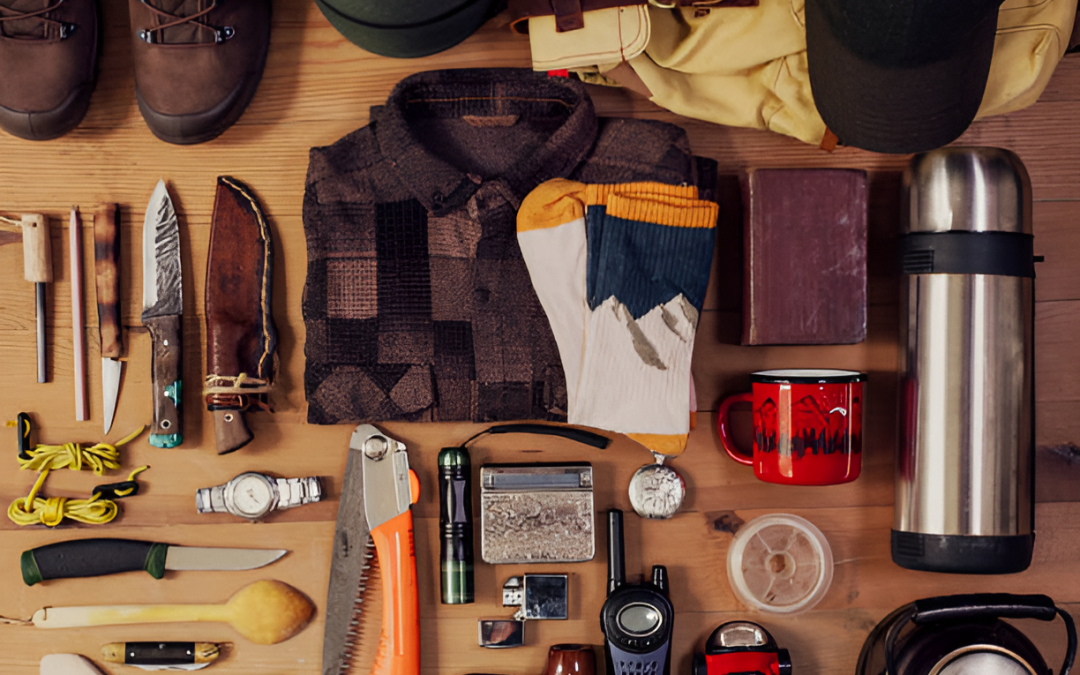Proper safety gear is the cornerstone of any successful camping trip, enabling adventurers to respond effectively to sudden weather changes, injuries, and unexpected emergencies. Even seasoned campers rely on a curated kit of proven equipment to mitigate risks and maintain comfort, as recommended by REI’s Expert Advice and the National Park Service’s Ten Essentials program.
Shelter & Weather Protection
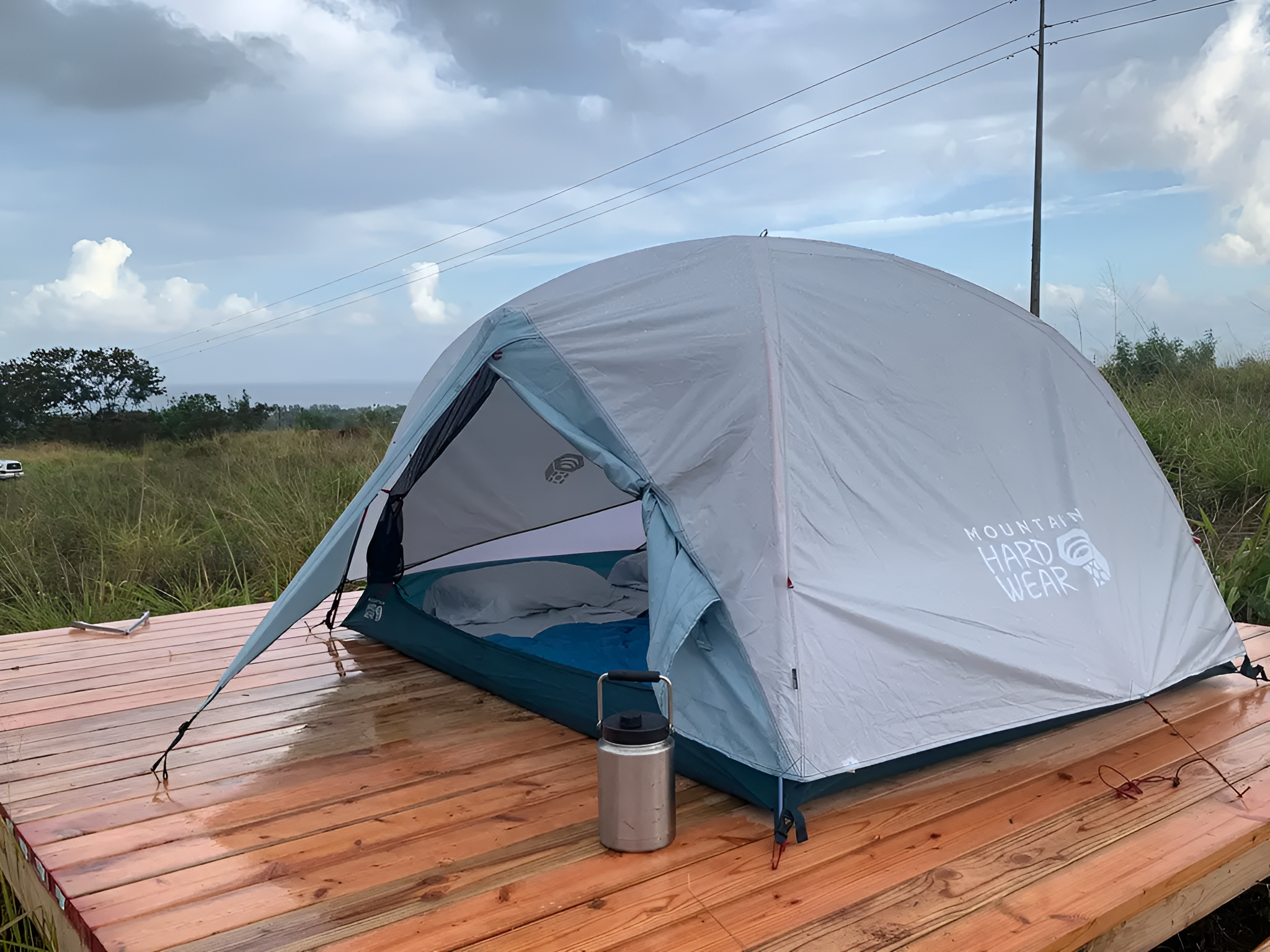
Waterproof Tents
Selecting a tent with a high hydrostatic head rating (≥1,500 mm) and fully taped seams ensures rain stays out even during prolonged downpours.
Emergency Blankets
Reflective space blankets weigh less than 2 ounces and can reflect up to 90% of body heat back to the user, making them invaluable in sudden cold snaps.
Thermal Clothing
Layering begins with moisture-wicking base layers—preferably synthetic or merino wool—that keep skin dry, followed by insulated mid-layers and waterproof outer shells to prevent heat loss and exposure, per REI’s layering basics
Fire & Lighting
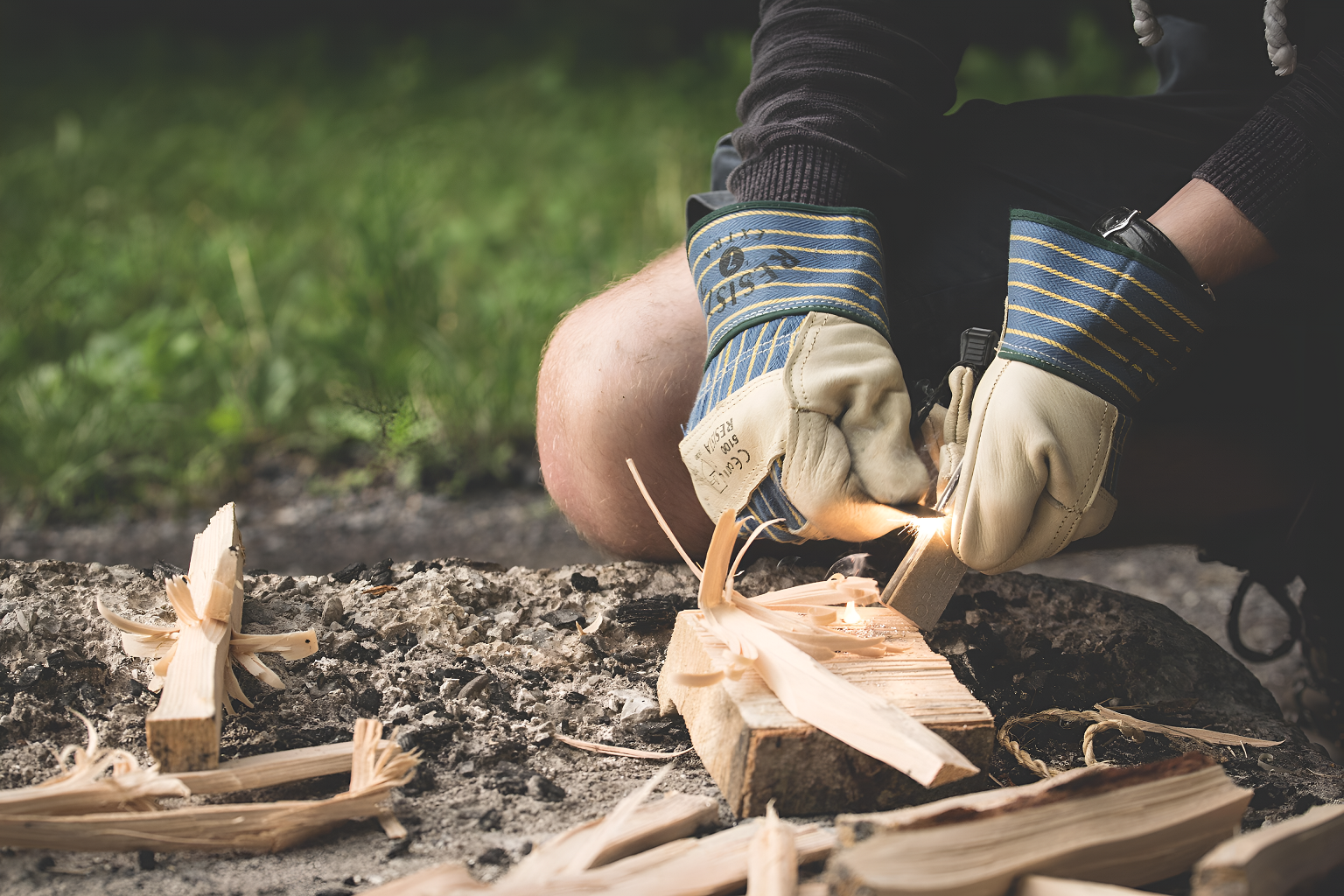
Waterproof Matches & Lighters
Store matches and butane lighters in a sealed, waterproof container to guarantee ignition even after brief submersion.
Ferrocerium Rods
Ferro rods (e.g., Firebiner) produce sparks at temperatures over 5,000 °F and work reliably when wet—ideal for backcountry fire starts.
Headlamps
Modern headlamps with 300–500 lumens, adjustable beam angles, and red-light modes preserve night vision and provide hands-free illumination for camp chores and trails
Lanterns
LED lanterns with IPX4 water resistance offer ambient, long-duration lighting; models like those reviewed by REI deliver up to 100 hours of run time on low modes.
First Aid & Medical Supplies

Bandages & Dressings
A well-stocked kit includes adhesive bandages, rolled gauze, and hemostatic dressings to control bleeding quickly and effectively.
Antiseptics & Ointments
Antiseptic wipes and antibiotic ointments prevent infection in cuts and abrasions, while hydrogel pads soothe minor burns.
Splints & Wraps
SAM splints, elastic bandages, and triangular cravats stabilize fractures, sprains, and dislocations until professional care is available.
Medications
Include ibuprofen, antihistamines, antidiarrheals, and any personal prescriptions; carry an epinephrine auto-injector if you have severe allergies.
Navigation & Communication
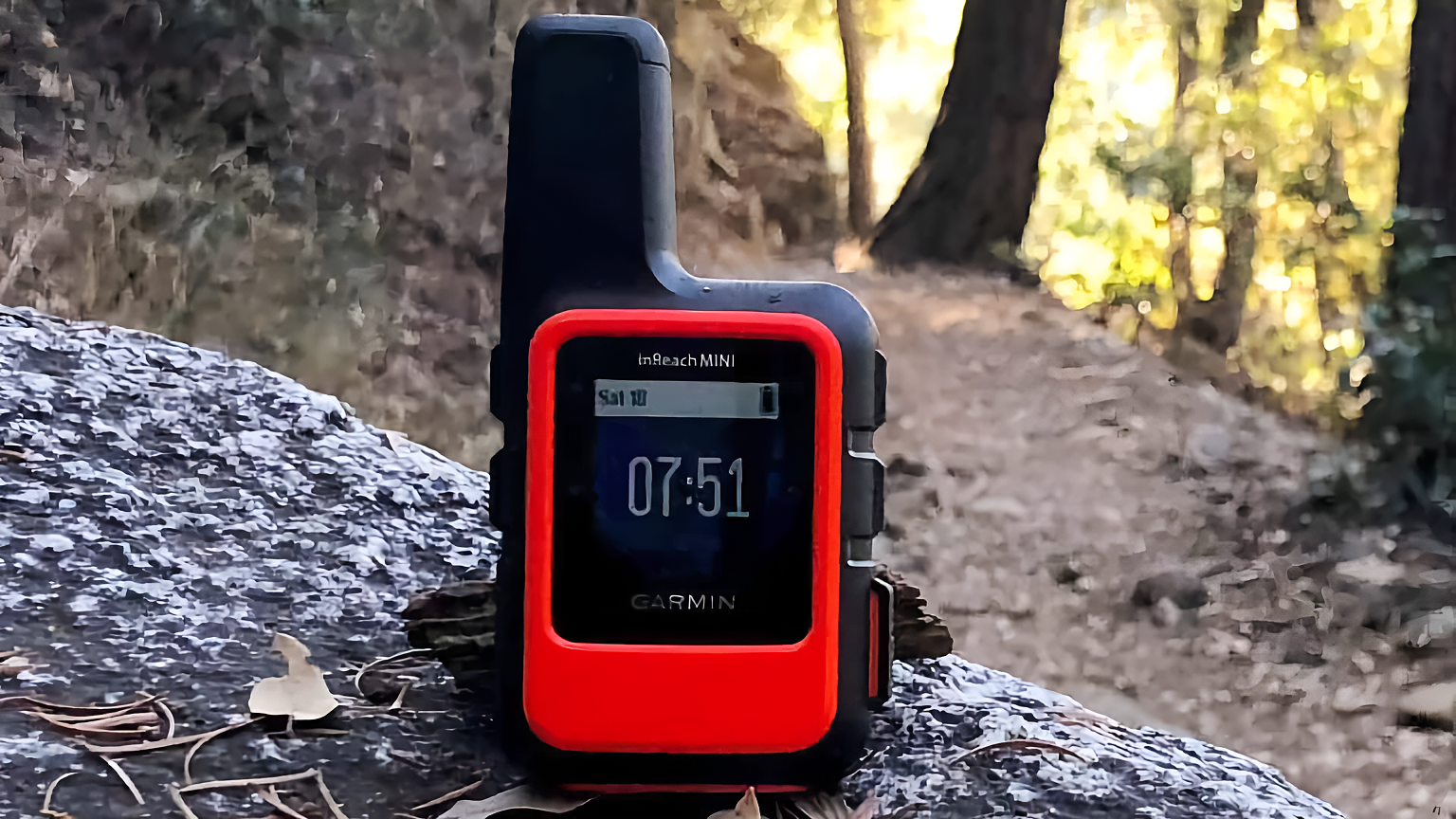
Topo Maps & Compass
Carry waterproof USGS or park-specific topographic maps and a baseplate compass; practice declination adjustment and triangulation before heading into remote terrain.
GPS Devices
Satellite communicators like Garmin inReach Mini provide two-way texting, location tracking, and an SOS function that alerts rescue services with your GPS coordinates.
Emergency Beacons
Personal Locator Beacons (PLBs) transmit an SOS signal via satellite networks, ensuring reliable rescue notification even without cellular coverage.
Wildlife & Insect Protection
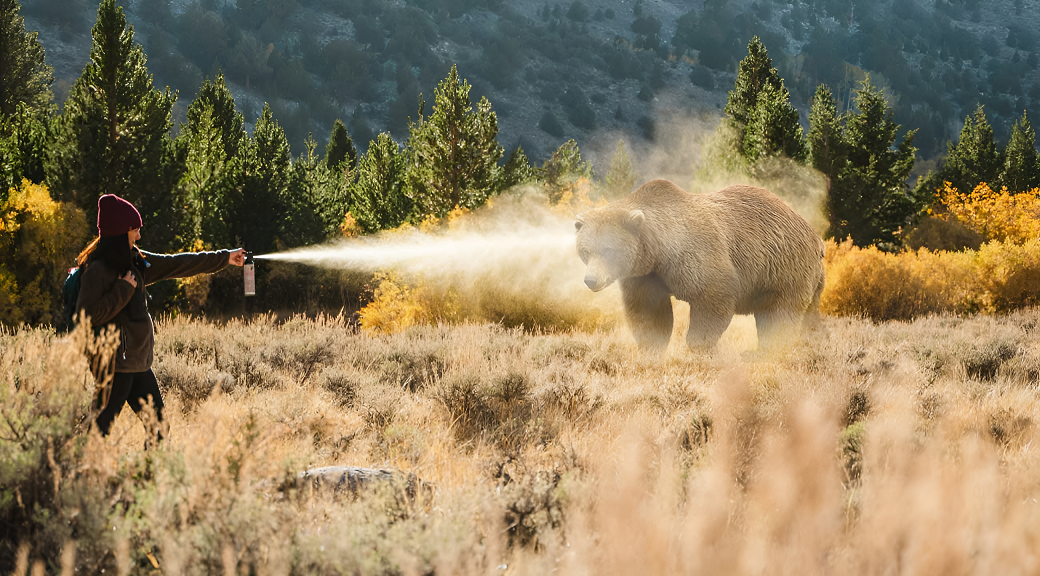
Bear Spray
EPA-approved sprays (e.g., Frontiersman) eject a fog at least 20 ft, creating a barrier that deters aggressive bears without lasting harm
Insect Repellent
Use EPA-registered formulations containing DEET, picaridin, or IR3535 to repel mosquitoes, ticks, and biting flies; follow label instructions for safe application
Food Storage
Hard-sided bear canisters or hanging systems keep food odors out of reach; store canisters 100 ft from your tent or use tree-hang methods per NPS guidelines
Hydration & Water Purification
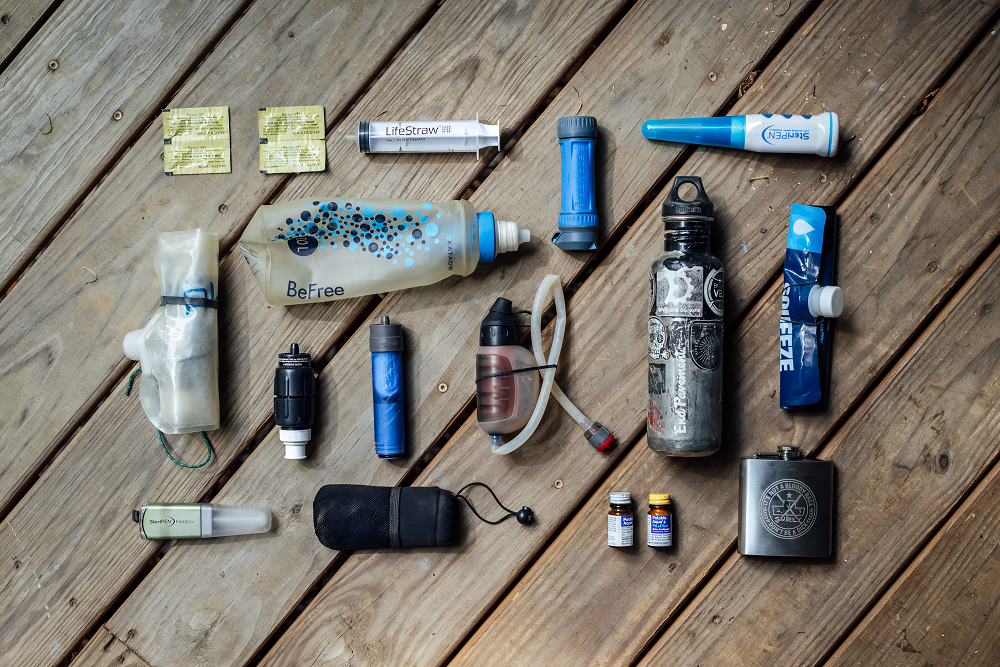
Portable Filters
Filters like the Sawyer Squeeze remove bacteria and protozoa from up to 100,000 gal of water and pair well with pre-filters to handle murky sources.
Purification Tablets
Chlorine dioxide tablets neutralize viruses, bacteria, and protozoa in 15–30 min, offering a lightweight backup when filters clog.
Collapsible Bottles & Bladders
Hydration reservoirs (1–3 L) with quick-disconnect hoses enable hands-free drinking and pack down to nearly flat when empty.
Emergency Preparedness

Multi-Tool
A Leatherman Wave+ or Victorinox Fieldmaster equips you with pliers, blade, screwdriver bits, and scissors for a variety of field repairs.
Repair Kit
Include duct tape strips, tenacious tape, spare buckles, cordage, and heavy-duty thread to patch tents, backpacks, and clothing on the fly.
Emergency Shelter
Lightweight bivvy sacks or emergency tarps (sil-nylon or Mylar) provide backup protection if your primary tent fails or you get separated from your gear.
Conclusion
Thoughtful preparation turns uncertainty into confidence. A sturdy shelter, dependable fire starters, comprehensive first-aid supplies, and reliable navigation tools are your first line of defense. Add wildlife deterrents, water-purification methods, and multi-tools to cover all contingencies. Practicing with each item—pitching your tent, using bear spray, reading a map, and treating mock injuries—builds mastery. Embrace redundancy by carrying backups for ignition, lighting, and communication. With these essentials and hands-on practice, you’ll truly “Camp Smart, Camp Safe” on every adventure.

